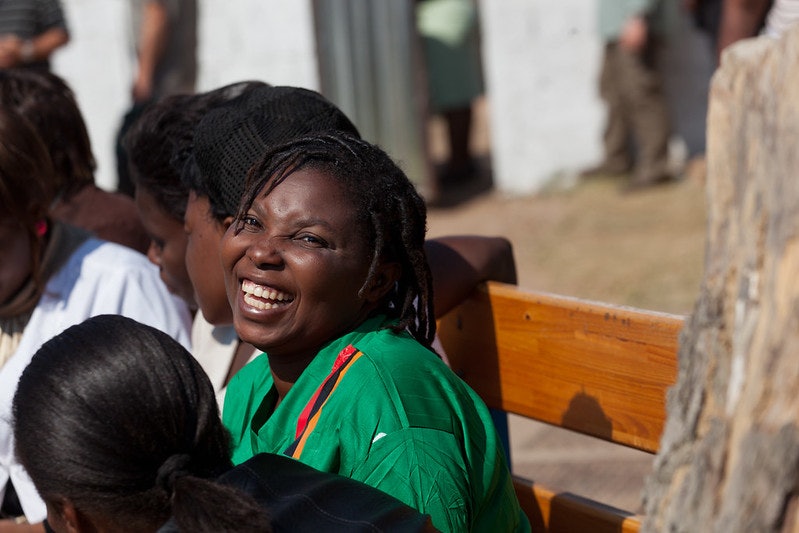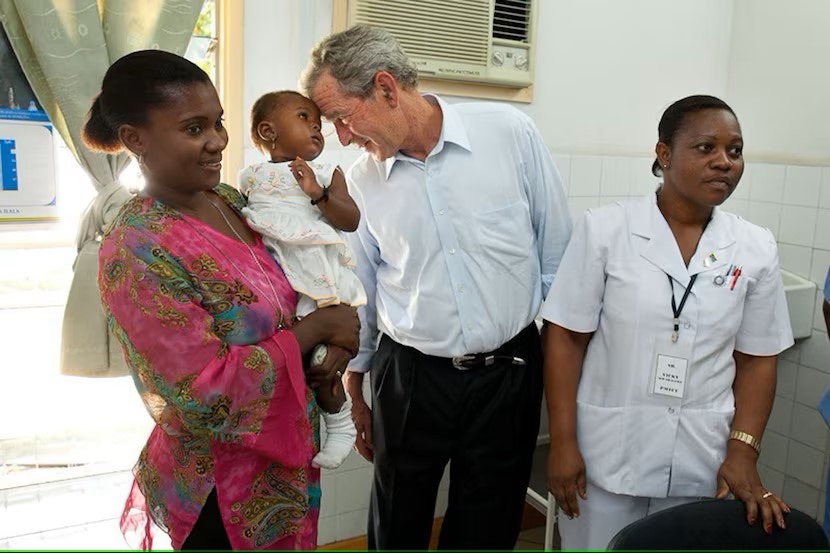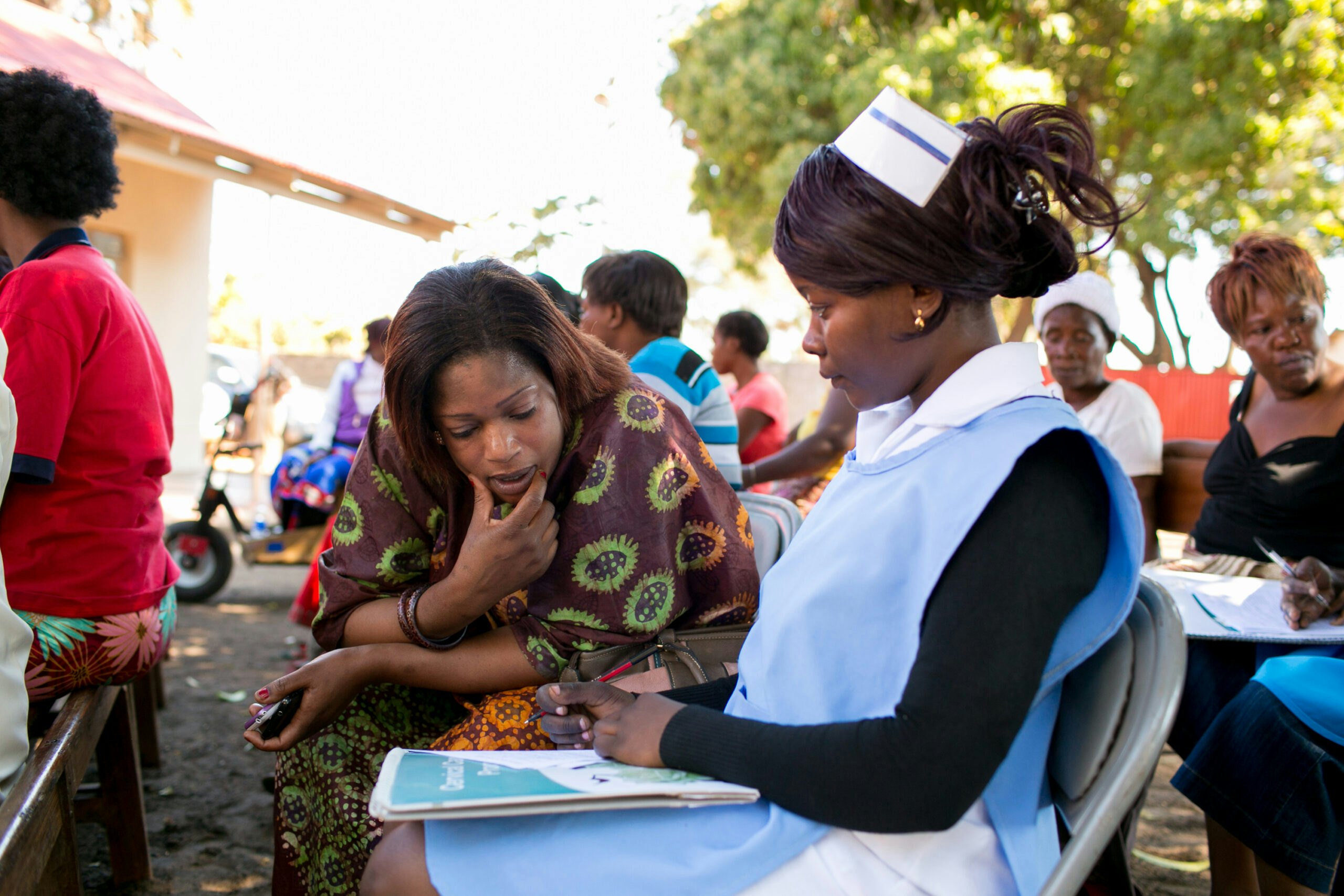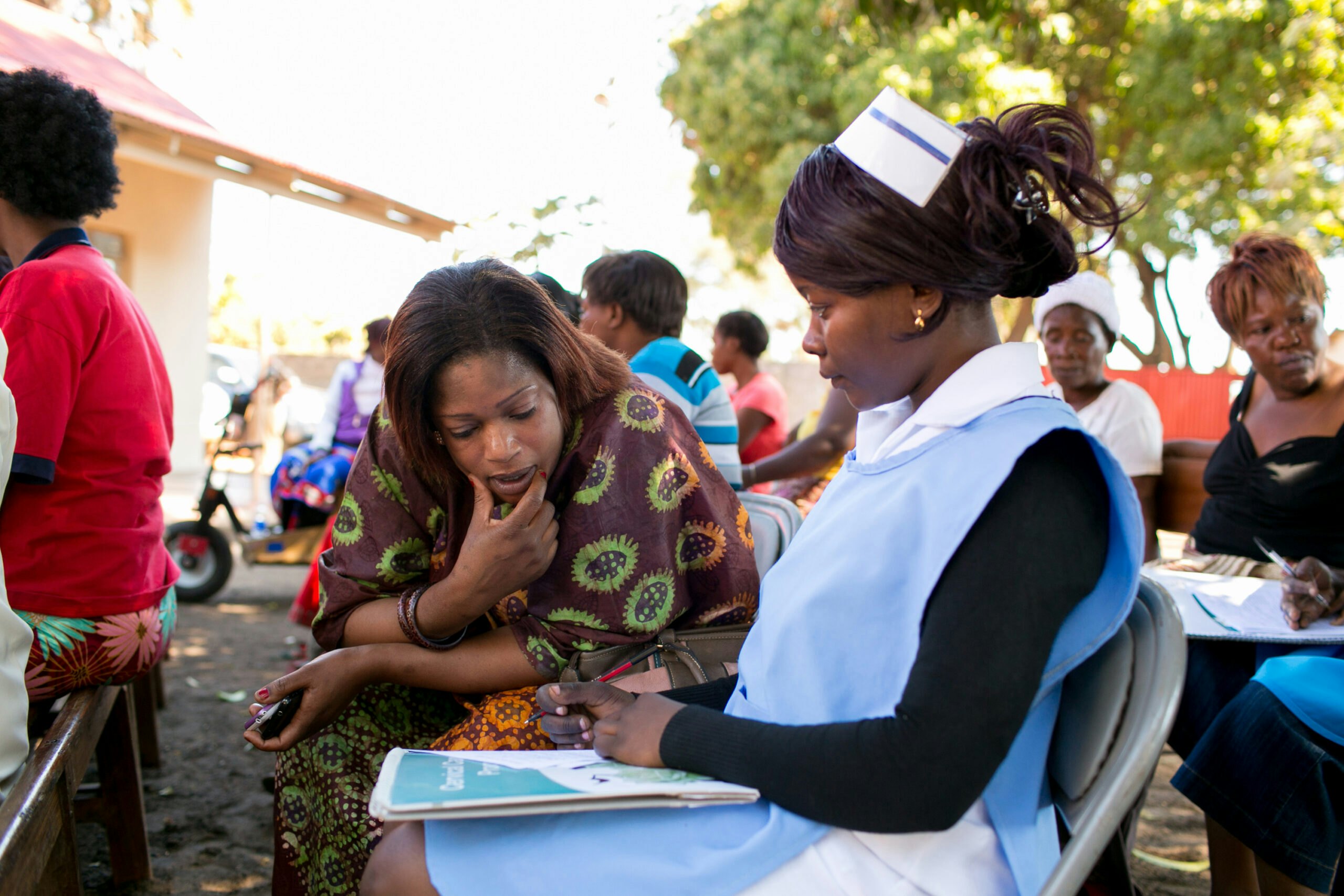Thursday, May 10, 2018
7:44 P.M.
Thanks, Steve. I appreciate the globe. (Laughter.) I want to thank Fred and the Board of Directors for honoring me with this award. As Hadley will testify, I really don’t like award banquets. (Laughter.) I had the greatest honor that anybody could have – and that is to be the President of the United States. That’s award enough. However, I’m honored you selected me. I’m also honored to be out here with Harold Schultz. I call him Starbucks man. (Laughter.) You need to call him Mr. Schultz. (Laughter.) General Scaparrotti – that’s kind of hard for a Texan to say. (Laughter.) Y mi amiga, Gloria Estefan. (Applause.)
I’m really here for two reasons: one is to highlight the success of the PEPFAR program, and two, to encourage Washington, the White House, the State Department, the Congress to make sure this program continues to be strong and save lives. (Applause.)
When Hadley invited me here, he didn’t tell me it was black tie. (Laughter.) He finally confessed, and he said, “Look, this is an important crowd in Washington. I don’t want you wearing that ‘ole ratty tux you used to wear at the White House Correspondents Dinner. (Laughter.) I looked at Hadley and said, “Hadley, read my lips: No new tuxes.” (Laughter and Applause.)
Laura’s sorry she can’t be here; she sends her very best. She’s doing great. And so does a previous Atlantic Council honoree – a man I call 41 sometimes; I usually call him Dad. He’s doing well – of course he misses Mom. I don’t know if you heard what Mom said the last time I ever saw her. We were in a hospital in Houston. The doctor walks in, and Mother looks straight at the doctors and says, “Do you want to know why George W. turned out the way he did?” The doctor was sort of perplexed. “Because I drank and smoke when I was pregnant with him.” (Laughter and Applause.) My whole family thanks you for your prayers and condolences. All was well with her soul, and all is well with ours. (Applause.)
In my quest to become a better painter, I’ve been studying Winston Churchill. It occurred to me that I am receiving a special award on a special date – May 10th, the date in 1940 on which the man who coined the term “special relationship” became Prime Minister of Great Britain. In his first address as the Prime Minister, Churchill said, “I hope I may be pardoned if I do not address the House at any length today.” I’m going to show you the same courtesy. (Laughter.)
Churchill received an honorary degree from Harvard– I guess the Yale trustees were asleep. (Laughter.) He spoke about the ties of blood and history and common values that bind our nations together. Law, language, literature…justice, compassion, morality…and above all, a love of freedom that connects us across the Atlantic. He also noted we are united by “a common tongue” – though I always had a little problem with the English part. (Laughter.)
Churchill said that in his lifetime, two world wars had shown that oceans no longer protected the new world from problems in the old. The only way for peace was through partnership and engagement. “If we are together, nothing is impossible,” he said. “If we are divided, all will fail.” That’s why the Atlantic Council is important today, and I appreciate your good works. (Applause.)
It’s very important for Americans to hear these words from Churchill about America’s indispensable role in the world and the dangers of isolationism: “The price of greatness is responsibility,” he said. “One cannot rise to be in many ways the leading community in the civilized world without being involved in its problems, without being convulsed by its agonies and inspired by its causes. If this has been proved in the past, as it has been, it will become indisputable in the future. The people of the United States cannot escape world responsibility.” I wholeheartedly agree.
15 years ago this month, this great nation took on a dire world responsibility. As Condi and Steve mentioned, an HIV/AIDS pandemic threatened to wipe out an entire generation on the continent of Africa. My Administration believed that of those to whom much is given, much is required. We believed that we’re all God’s children, and every human life is precious. So in 2003 we decided that the greatest, wealthiest nation ever had a moral responsibility to intervene.
We recognized, too, that the United States had a national security imperative to act. Societies mired in disease breed hopelessness and despair, leaving those forgotten by wealthy nations susceptible to recruitment by radical extremists. As I said when I signed the law authorizing PEPFAR on May 27, 2003, America is the nation of the Marshall Plan, the Berlin Airlift, and the Peace Corps. As we saw on 9/11, how people live overseas can affect us here at home. When we confront suffering – when we save lives – we breathe hope into devastated populations, strengthen and stabilize society, and make our country and the world safer.
A decade and a half on, PEPFAR has had great results. You have heard them tonight. 13 million people live who would have died had it not been for the generosity of the American people. Across Africa, people who had been given up for dead are leading healthy and productive lives. Entire villages that had been abandoned are now thriving. Calling to mind the story of Jesus raising his friend from the dead, Africans have come up with a phrase to describe the transformation. They call it the Lazarus Effect.
The sad news is, most Americans have no idea that their generosity has had such an amazing effect. I’ve come tonight to draw attention to this great and compassionate act. Some Americans may ask, is this really in our national interest? Why are we spending money abroad when we have big problems here at home? Those are legitimate questions. Here’s my answer. I believe that spending less than two tenths of one percent of our federal budget to save millions of lives is in the moral, the practical, and the national security interests of the United States. (Applause.) People say we shouldn’t spend money on programs that don’t work – at home or abroad. I completely agree. But we should invest in programs that are efficient, effective, and results-oriented. PEPFAR is such a program. It works, and it’s going to have positive implications for our country for decades to come. And we must fully support it. (Applause.)
So, I woke up in Crawford the day after watching President Obama getting sworn in. It was quite a shock: I had to get the coffee. (Laughter.) Shortly thereafter, we discovered this startling fact: that women who have HIV are five times more likely to develop cervical cancer – which is a preventable, treatable disease. And it broke my heart to think about the Lazarus Effect taking hold in a village, and then a preventable disease taking a life. So at the Bush Center, we decided to do something about it. We launched a public-private partnership utilizing the PEPFAR platform to deal with cervical cancer, the leading cause of death among women in sub-Saharan Africa. (Applause.)
More than half a million women have been screened. 32,000 have been treated for precancerous lesions. 147,000 have been vaccinated against HPV, the virus responsible for most cases of death.
Over the past year, the Bush Institute has worked with Ambassador Deb Birx and PEPFAR on a bold new strategy. And this week, we are announcing the next phase of our partnership with PEPFAR and UNAIDS: a plan to effectively eliminate cervical cancer amongst HIV-positive women within a generation. (Applause.)
Laura and I have been to Africa five times since we left Washington. I wish a lot of our citizens could go and realize how appreciative they are for our generosity. It’s the best kind of diplomacy there is. It’s soft power at its most beautiful. We were recently at a clinic in Namibia in a maternity ward where 120 women, all of whom had HIV/AIDS, were with their babies – not one of whom had HIV. (Applause.) And so I’m honored to get this award; I’d really like to dedicate it to the generosity of the American people and ask you to spread the word about what this great compassionate nation has done.
I want to conclude by talking about that speech Churchill gave at Harvard – nothing wrong with Harvard. (Laughter.) “To the youth of America, as to the youth of all the Britons, I say, ‘You cannot stop.’ We have now reached a stage in the journey where there can be no pause. We must go on.”
We have turned the tide against HIV/AIDS. But the gains are still fragile. We cannot stop. We have now reached a stage in the journey where there can be no pause. We must go on.
Thank you.
END
7:57 P.M.




























